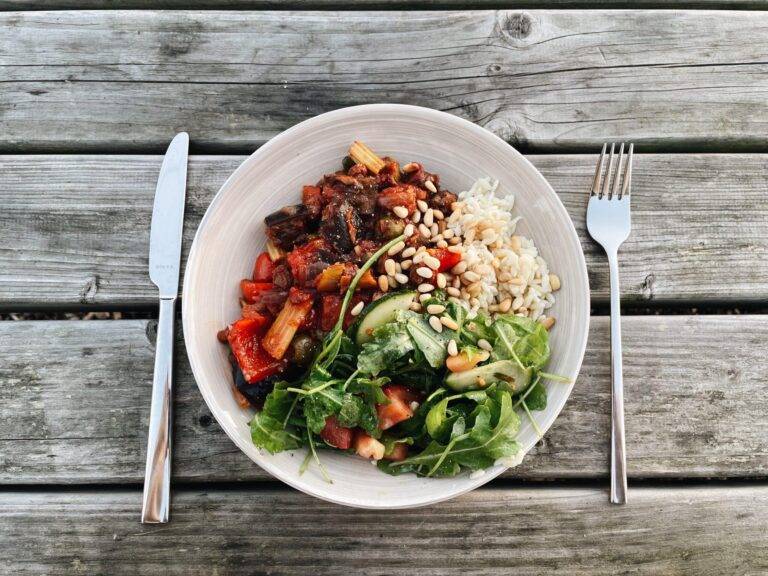Here are some pretty easy things anyone can do to live more sustainably and you’re probably doing a few of them already. People power can be pretty amazing. Small actions like listed below, when enough people care and do something – can make a huge difference!
And just because things are the way they are now, doesn’t mean they have to stay that way. Fossil fuels, global warming and greenhouse gasses are all bad news for the environment; but we’re all in this together, and anyone who consumes has the power to change something. Even if you’re only doing a few simple things, it’s a start.
1. Bag your own groceries in reusable bags
Made from ethylene, a byproduct of petroleum or natural gas, plastic bags are wasteful. Many stores still don’t charge for plastic bags, giving them out like it’s nothing. Plastic bags clog up drains and landfills. Even worse, they end up in the sea where dolphins, who don’t know any better, end up playing with them and suffocating. Buy a reusable cloth bag and take it with you every time you shop. Skip the plastic bags for products too.
2. Buy organic when possible
Conventional farming methods, which rely heavily on pesticide use, pollute and damage soils, waterways and ecosystems. Pesticides can have both acute effects and chronic adverse effects on the health of workers and their families, months or years after exposure.
In contrast, organic agriculture relies on ecological processes, biodiversity and cycles adapted to local conditions. When you buy organic, you’re supporting the health of soils, ecosystems and people, and promoting a more sustainable environment. Going fully organic is not an option for everyone, but perhaps it can be ‘some of the time’.
3. Eat less meat
The meat industry generates more man-made greenhouse gas emissions than the transportation industry. Meat production is one of the most environmentally destructive industries on the planet. It is responsible for excessive water use, pollution, greenhouse gas emissions and habitat destruction.
By eating less meat, you’re doing one of the easiest and most effective things to combat climate change. Start with one meat-free day a week, and when you realise you’re not withering away from fatigue, go on to two or more. By reducing your meat consumption, you can reduce your environmental footprint.
4. Opt for reusable coffee cups
Sure, we’re all fiends for a good ‘cup of joe’; but in Australia, they bin 2.7 million disposable coffee cups a day. That’s nearly 1 billion a year and that is, quite frankly, insane!
Get yourself a reusable cup. There are some pretty good looking ones out there. Keep it in your bag, at home or at work, and BYO everywhere you go. Some cafes even give you a discount if you have one.
5. Ditch the plastic bottled water
Water has to be pumped out of the ground, packaged, transported and chilled before it gets to a fridge near you. What this creates is tons of greenhouse gases. Invest in a water filter and get yourself a water bottle and take it everywhere with you. You don’t even need to buy a fancy one, reuse a glass bottle. Why waste your money on bottled water when you could just filter your own water?
6. Don’t waste food
It is estimated that each year globally, approximately one-third of all food produced for human consumption in the world goes to waste. This represents a missed opportunity for improving food security, and presents an opportunity for mitigating the environmental impact of this food production.
Natural resources used for growing, processing, packaging, transporting this wasted food produce an estimated 3.3 Gtonnes of CO2 equivalent. Food wastage ranks as the third top emitter of carbon emissions. Food for thought.
Use up everything. Freeze old fruit to use in smoothies; and when life gives you rotten bananas, make banana bread! Old veggies still taste great if they’re used in stirfries or roasted. Take leftovers for lunch. Plan your meals ahead, and remember, it’s better to buy too little than too much.
7. Forget the plastic wrap
There are loads of other ways you can package your food, and plastic wrap doesn’t need to be one of them. Get yourself a BPA free plastic container or reuse glass jars to take your lunches in. Most meals can fit in a jar – breakfast in a jar, salad in a jar… you get the point. Most health food stores have paper bags too, which are a great alternative to plastic wrap.
8. Start a compost
Composting requires very little effort and resources, but the positive impact on the environment is huge. Modern waste management methods are less than ideal. Waste sits in landfill sites where the vital oxygen that is needed to facilitate the decaying process cannot reach it. What happens is that this landfill material releases greenhouse gases that contribute to climate change.
Composting is the active breakdown of foods, like vegetable and fruit scraps, and other materials, like grass and plant clippings, through an organic process. What you end up with is nutrient dense compost that will boost your garden productivity big time. Don’t have a garden? Start one. That’s next on the list.
9. Grow your own vegetable garden
Try growing your own food, it’s not that hard. Plant some seeds in a corner of your yard or in a container on your porch or windowsill. Don’t really have a lot of space? Try sprouting seeds. Not sure how to get started? Check out this post from The Organic Mechanic on how to build yourself an epic garden.
10. Rethink fast fashion
Figures from the Ministry for the Environment show that 100 million kilos of textile waste is thrown into rubbish dumps every year. That’s like every person in New Zealand throwing out about 145 medium-sized men’s T-shirts a year!
In a world of consumerism and fast fashion, where we feel that what we wear is an expression of our true self, not buying more clothes may not be a sensible suggestion. What is though, is spending a little bit more on clothing that will last and not end up in a landfill 3 months later. If you’re buying jeans for $30, you’ve got to ask yourself if that is actually a good thing. There’s an ugly side to the fashion industry, check out this documentary, The True Cost.
11. Watch your water usage
As soon as 2025, large parts of the world could experience severe water shortages. Already one billion people don’t have access to clean drinking water, and the world’s ground water reserves are running low.
Water is increasingly in short supply because of growing demands from agriculture, an expanding population, energy production and climate change. So do your part and think about how you use it. Take quick showers. If you have a dishwasher, use it, because it requires less water than hand washing stuff. Save your washing, you’re doing full loads and not wasting water.
12. Go paperless
Save the trees and use an alternative to printing when it’s available. We need the trees to pull the CO2 out of the air, which means we need to stop wasting paper.
Airlines, movie theatres and most events now have electronic tickets which you can scan or show on a smart phone instead of printing a physical copy. Make sure you’ve opted out of paper bank statements or have other bills, like power and gas, emailed to you. It actually makes life easier!
13. Wash your clothes in cold water
Wash your clothes in cold water, whenever possible. As much as ninety percent of the energy used to machine-wash clothes goes towards just heating the water. Washing in cold water will not only prevent you from accidentally shrinking your clothes, but it will save you money too!
14. Repurpose, reuse and recycle
The more you can live daily without creating waste, the better your impact on the environment. Instead of throwing things away, figure out how you can up-cycle them and transform trash into something useful. Keep glass jars and bottles for storing food. If you do end up with plastic bags, instead of just dumping them, use them for poop bags for your dog or lining small rubbish bins.
15. Turn those power switches off
Here’s an easy one, unplug appliances when you’re not using them. Appliances left on standby can cost you more than $100 a year alone! Switching to energy efficient light bulbs can also save you big time.
16. Rethink transportation
Changing your driving habits can dramatically reduce your carbon footprint too. While a big ask during winter; in the summer, consider walking rather than taking your car out to get 15 minutes up the road.
While public transportation is just not convenient for many people, ask around at work or uni and see if there are others you could car pool with. Think of other ways you can use your car less, like combining your errands or working around your work commute. You’ll make fewer trips and save big time on petrol!
17. Clean greener
While it might be tempting to spray your whole place with bleach, a lot of common household cleaning products are actually pretty toxic to our health. There are plenty of non-toxic cleaning products out there now, and even some cleaners you can make at home, using basic ingredients. Check out these DIY cleaners here and check out this post from Little Bird Organics on natural ways to keep those flies away!
Which of these are you already doing? What other lifestyle changes can we make to all live more sustainably? Let us know in the comments.
This content was originally published here.




















